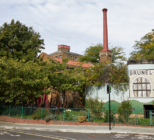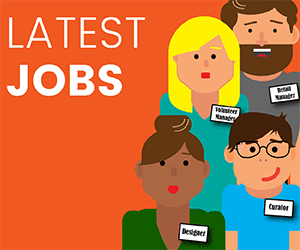How would you sum up the current state of the museum sector: what areas are doing well and what areas do you feel need to be improved?
Museums continue to do fantastic work, I’m constantly impressed by the variety of activity and ambition I see across the sector. Just look at Derby Museum’s new World Collections gallery – bursting with extraordinary objects from around the world and the stories they can tell. Or the wonderful work Leeds City Museum is doing with families, organising baby-friendly curator talks and ‘Dadstastic’ Days, leading them to win the coveted Kids in Museums Family Friendly Museum of the Year Award.
But there are concerns about Local Authority funding for museums, particularly how museums reliant on these funds will cope with future cuts and what restrained spending will mean for collections and buildings.
Having fully integrated museums investment into our funding streams, this will be the first time that Arts Council will develop a strategy with museums in it from the start
In the summer the Arts Council published its findings from The Conversation survey that will help shape its 2020-2030 Strategy – what were some of the key points that were raised through this research project?
The next ten years: The Conversation was a wide-reaching engagement programme run by BritainThinks for the Arts Council, to help us take stock of our current activities and learn more about what people think the future holds for arts, museums and libraries, and how this will impact our role moving forward.
It was clear that the sector and public broadly believe that arts, museums and libraries are valuable – both to individuals and society – but more needs to be done to communicate this value, and to show that there is something for everyone. The research showed that that the public don’t always associate their creative activities with ‘arts and culture’, thinking these terms refer only to things like classical music, ballet and opera, and are often unaware of what local opportunities exist.
Other points raised were improving diversity, in workforce, participants and audiences; promoting arts and culture to younger audiences, in and out of schools; and making use of digital technology – which is viewed as one of the most important developments for arts, museums and libraries.
The Seven Proposed Outcomes
The Next Ten Years – Developing a new strategy for Arts Council England 2020-2030

The next ten-year strategy will be published in autumn 2019 – how important is it to get this right and what will it mean for museums?
Having fully integrated museums investment into our funding streams, this will be the first time that Arts Council will develop a strategy with museums in it from the start. It is vital that the new strategy works for museums and everyone who visits them. I hope it will mean an even closer synergy between museums and the rest of the cultural sector that Arts Council England supports.
What are the next steps in the consultancy for the 2020-2030 Strategy and how can people get involved?
After gathering and analysing a range of evidence, which The Conservation report was part of, we’ve identified seven proposed outcomes that we believe the Arts Council should aim to achieve by 2030.
We need people who are passionate about museums to respond to our consultation on the outcomes that we have developed for the strategy and let us know how they work for museums, and if they can be improved. The online consultation is open until 2 January 2019, and you can find all the details on the Arts Council website.
We will be taking into account all the feedback we receive from the online consultation and sharing those findings in the spring, and later in the year we will be holding another consultation on a draft of the strategy.
In what ways can this report improve the future work the Arts Council conducts and how it serves the museum and cultural sector as a whole?
The Conversation forms part of a large evidence base we have gathered develop our new ten-year strategy. To assess what needs to be prioritised over the next decade, and to improve how the Arts Council will most benefit the sector and public, we need to understand the impact of our current work as well as identify the gaps.
Facilitating partnerships
The report also showed that there are a range of roles beyond funding that the Arts Council is seen as well-placed to take, including bringing the funded and non-funded sector together, facilitating partnerships between grassroots and larger organisations, brokering relationships beyond the sector, and providing leadership and guidance on responsible governance and CPD. It was also identified that the Arts Council should take on a more active role in advocating for the sector’s wider contribution to the economy, on health, education, and the way it brings diverse communities together.
All this feedback will influence how we plan for the next ten years and help ensure that we are giving museums of all sizes across the country the support they need to thrive in an uncertain political and economic climate.
What Arts Council funding streams and projects should museums and individuals be looking out for over the next six months?
Museums should take a look at our new open-access grants programme, National Lottery Project Grants, which, since April, have been open to applications from Accredited museums for projects focused on museum practice.
A huge range of work is eligible, including public programming, learning projects, digital and creative media collections projects, conservation, public participation and engagement, outreach and community work, organisational resilience and professional development. Both accredited and non-accredited museums can continue to apply for grants for arts-focused activity as well.
We also expect the next round of Capital: Small Grants to open in Spring 2019, which museums in the National Portfolio can apply for, to support the delivery of arts activity.
Take part in shaping the next ten years
Take part in the online consultaion. Ends 2 January 2019.










